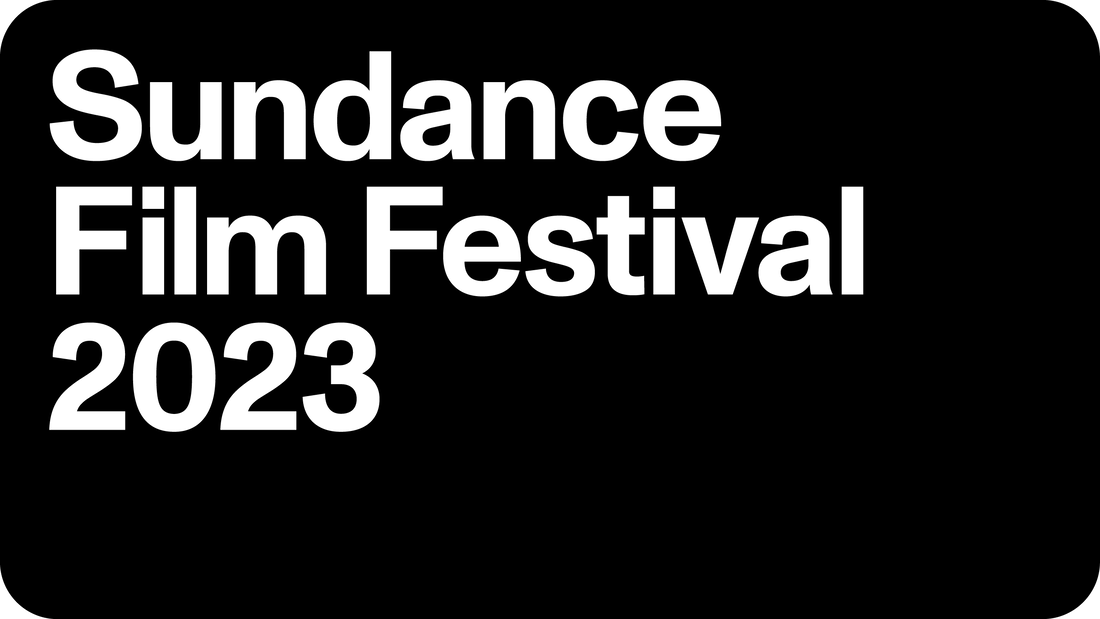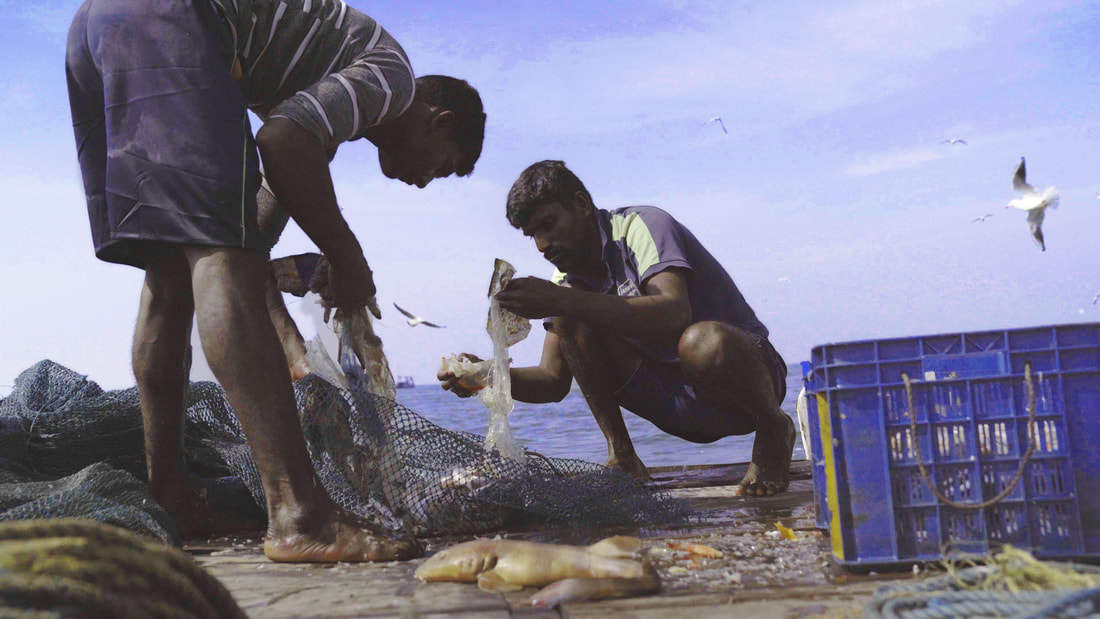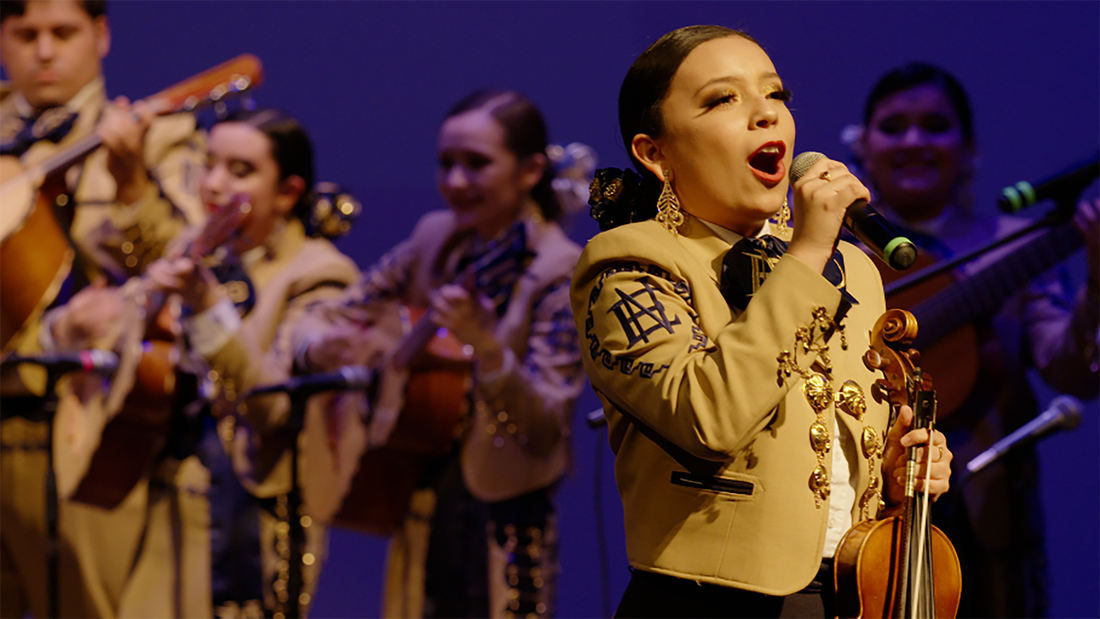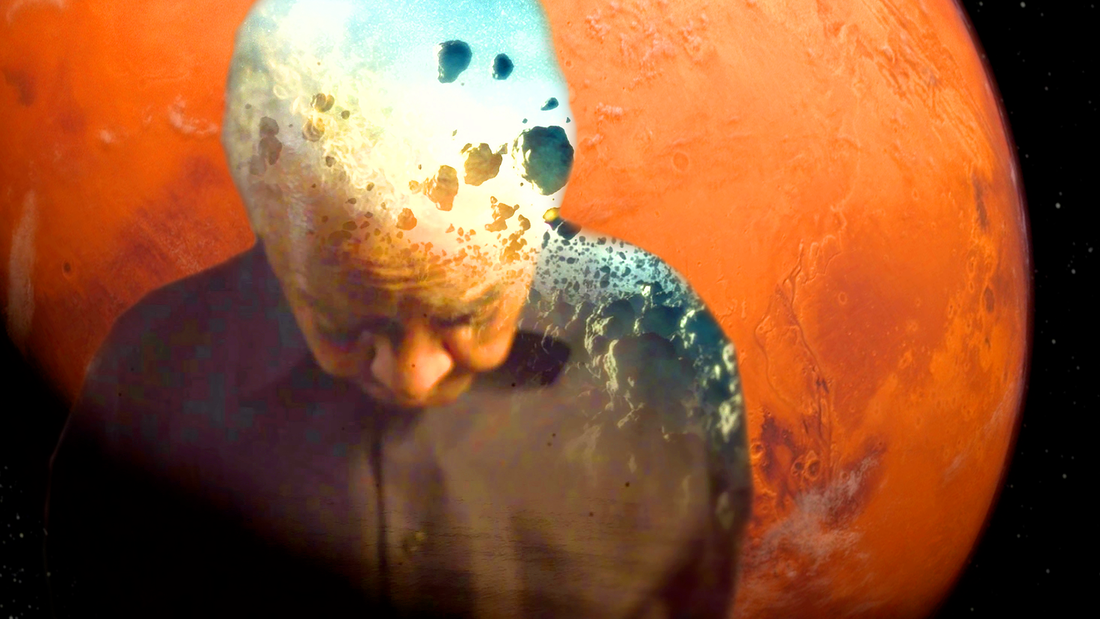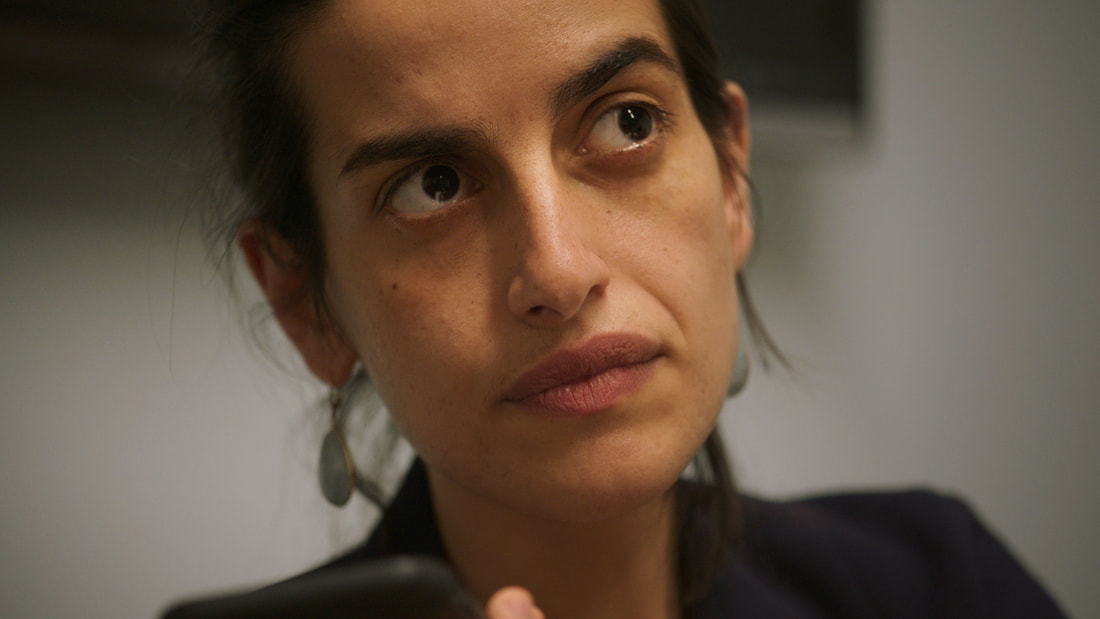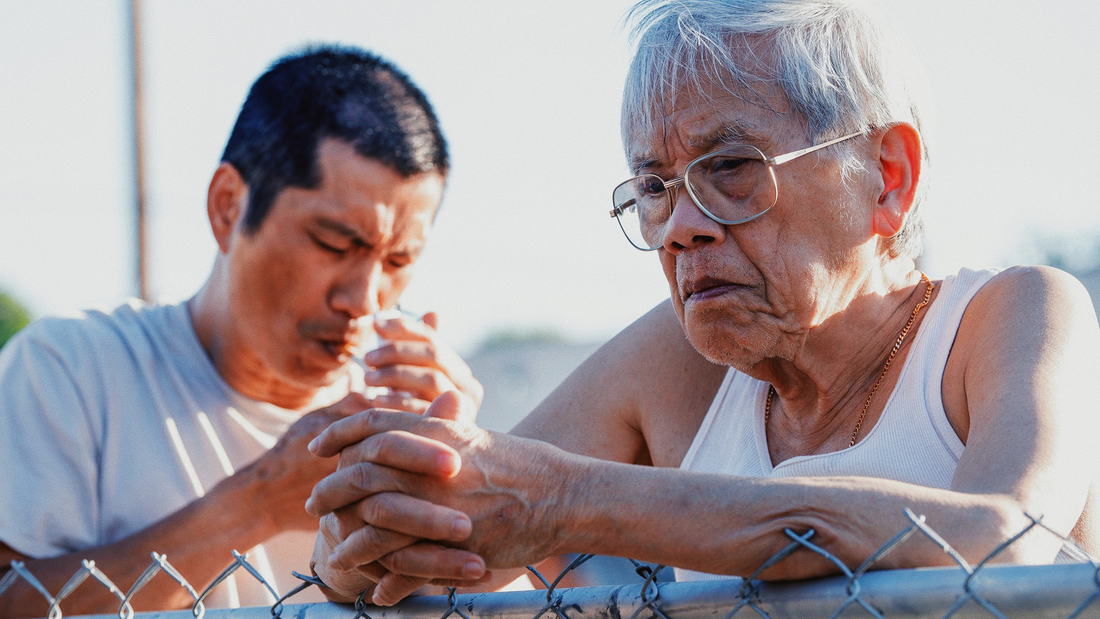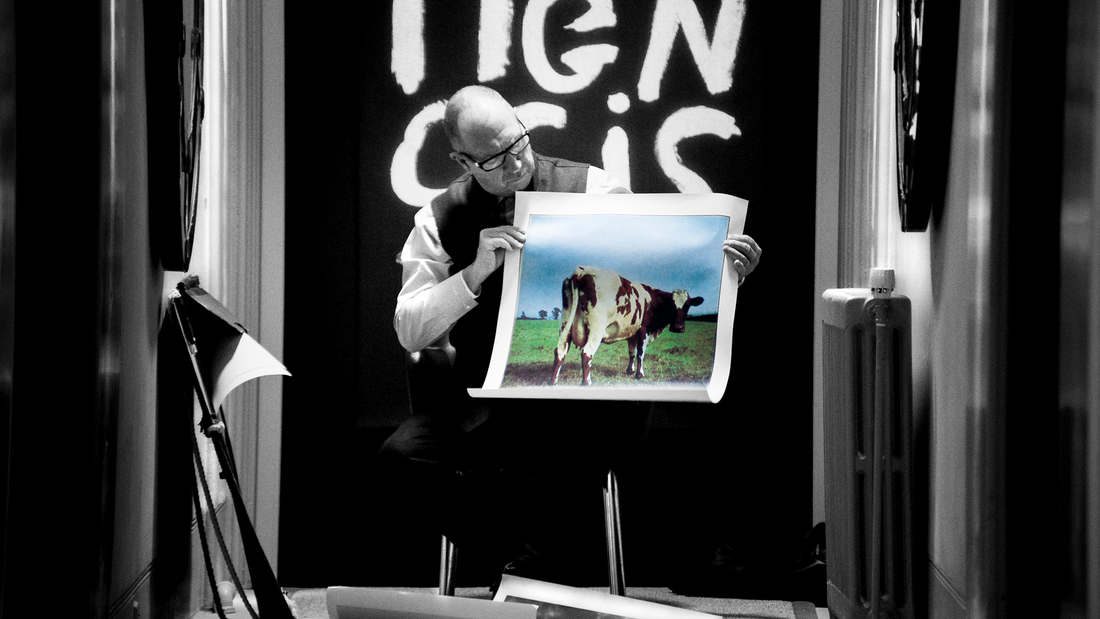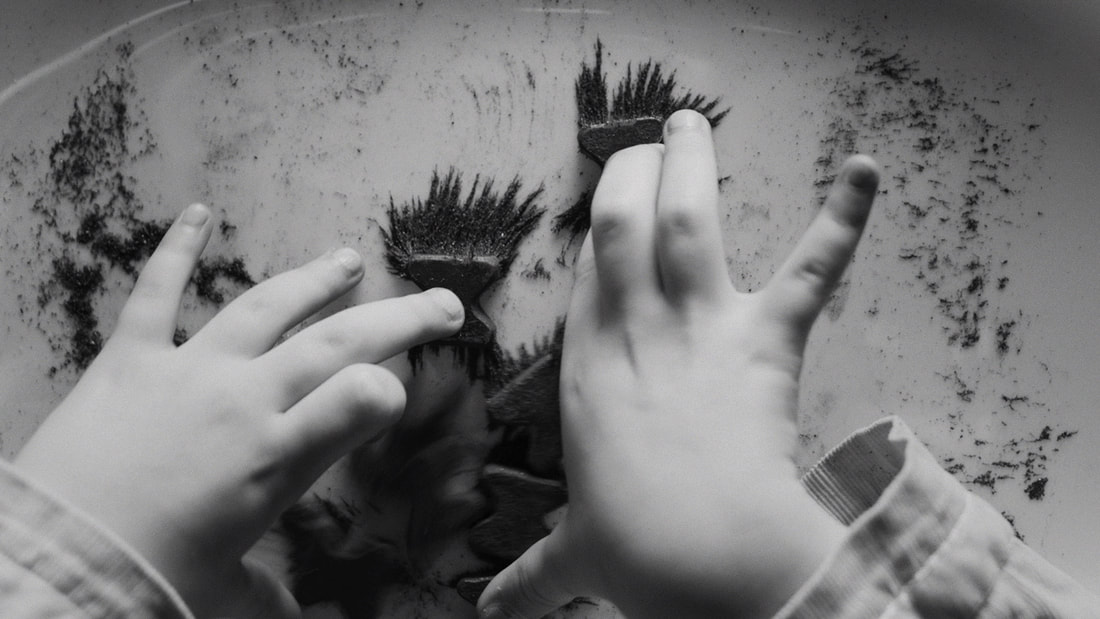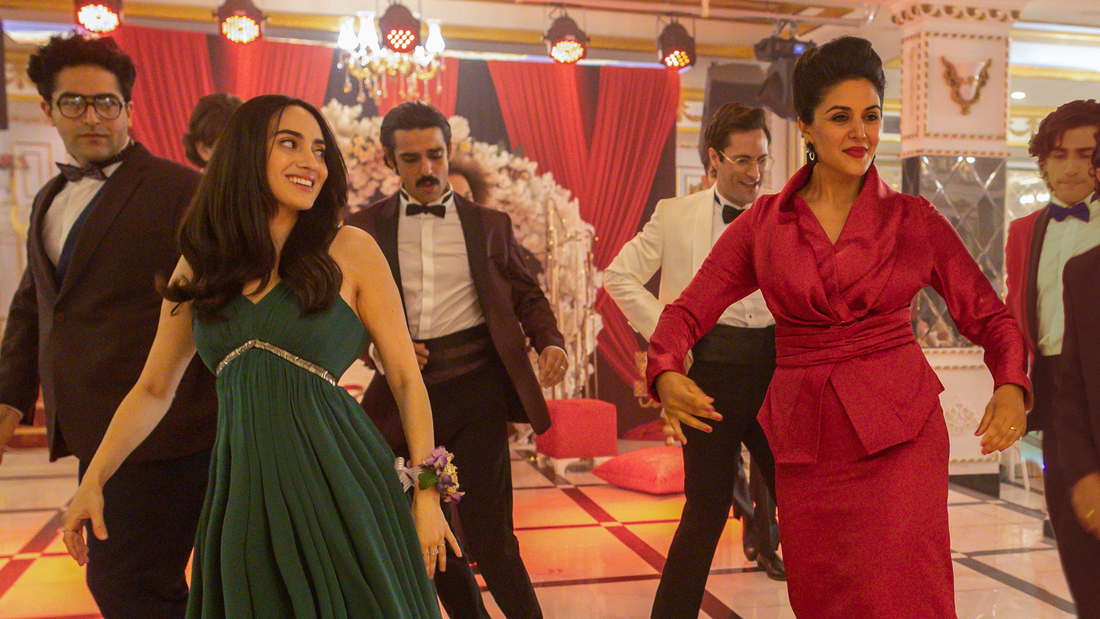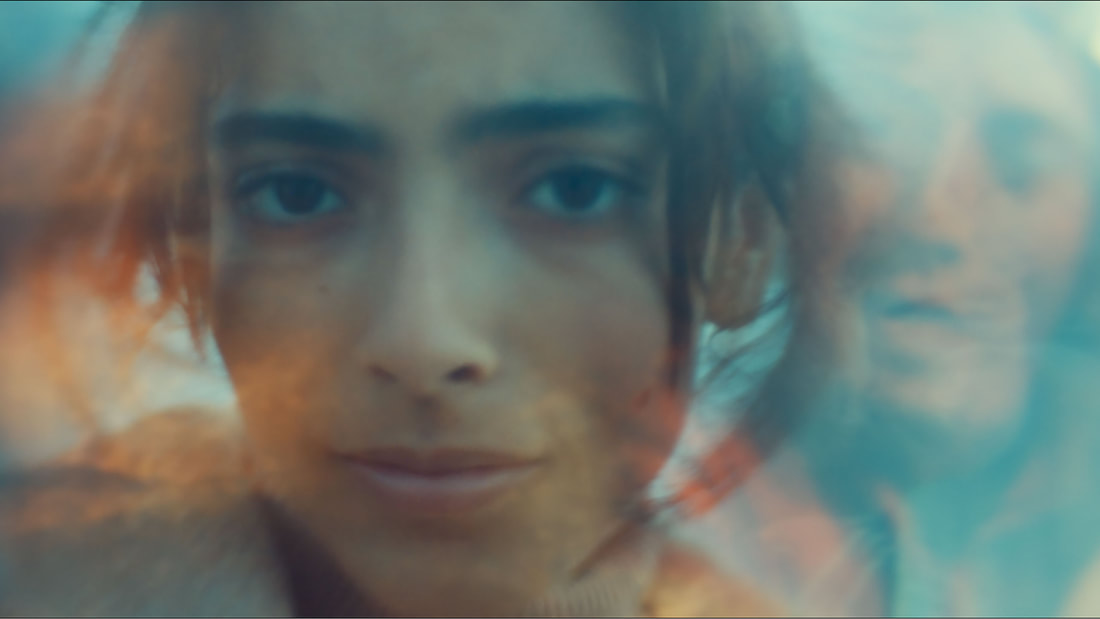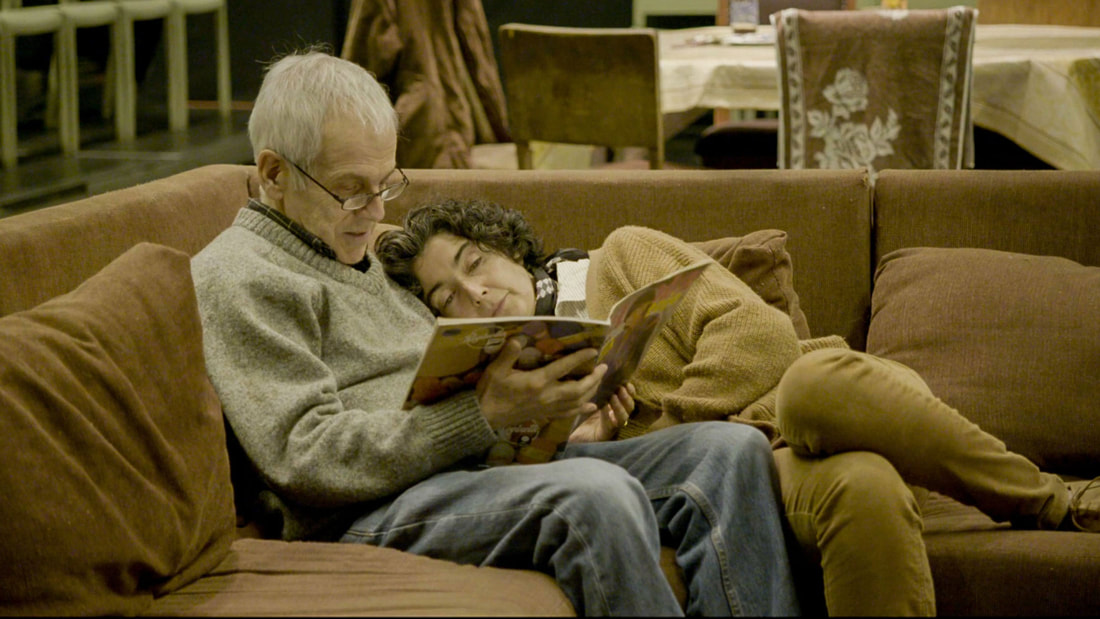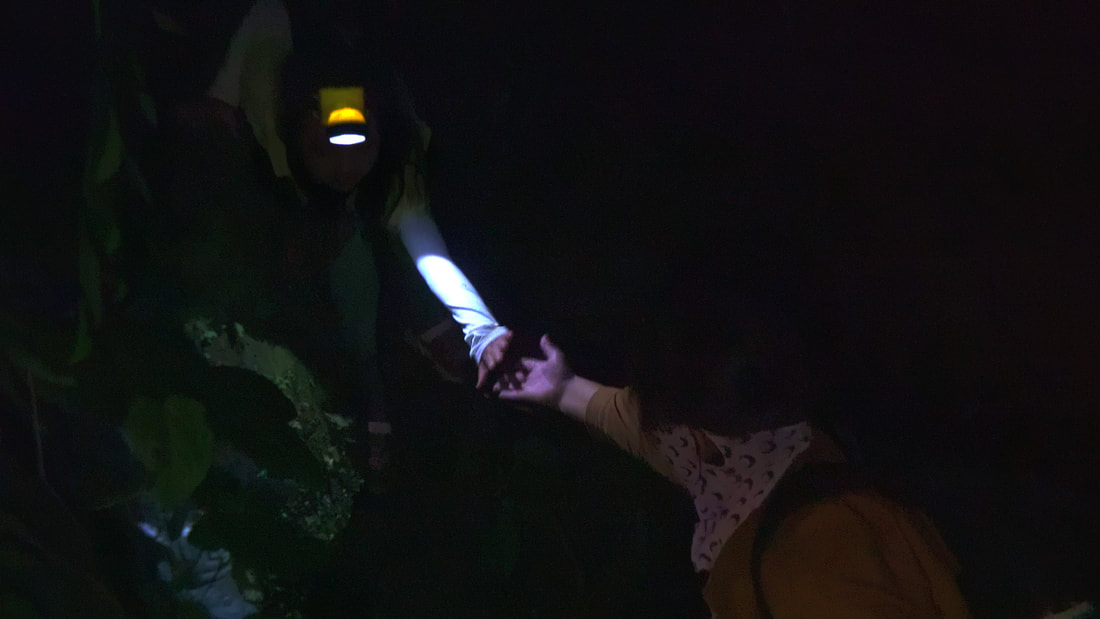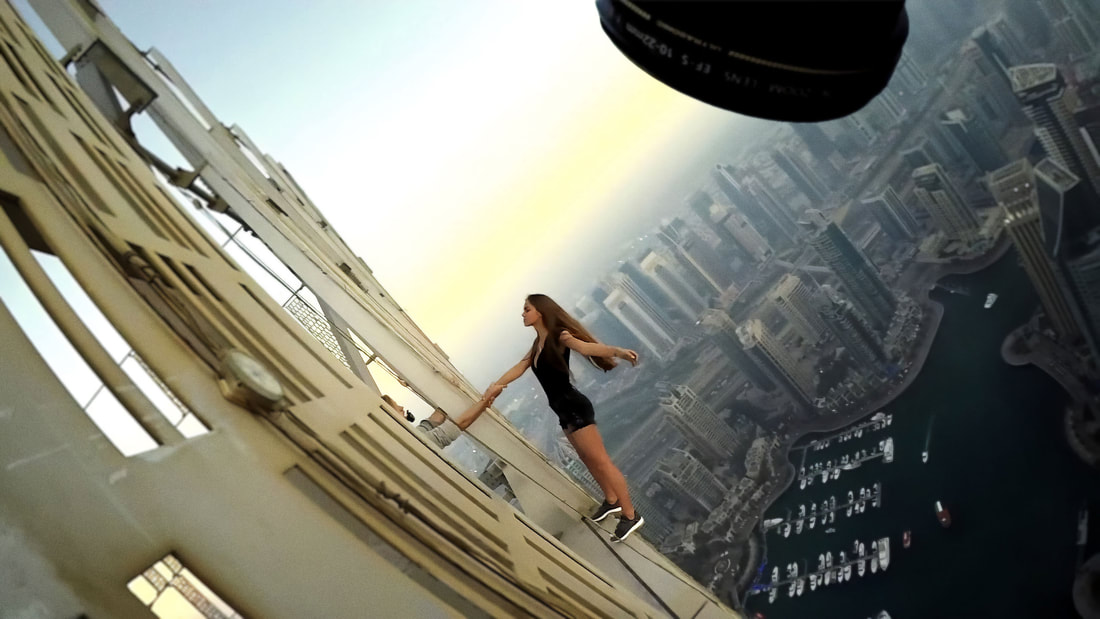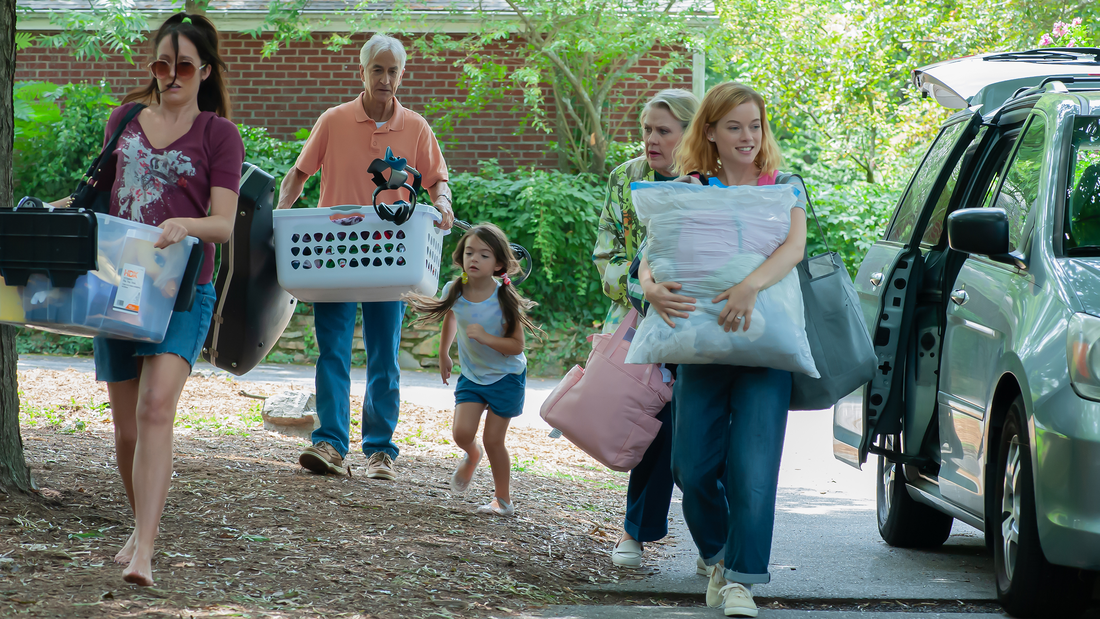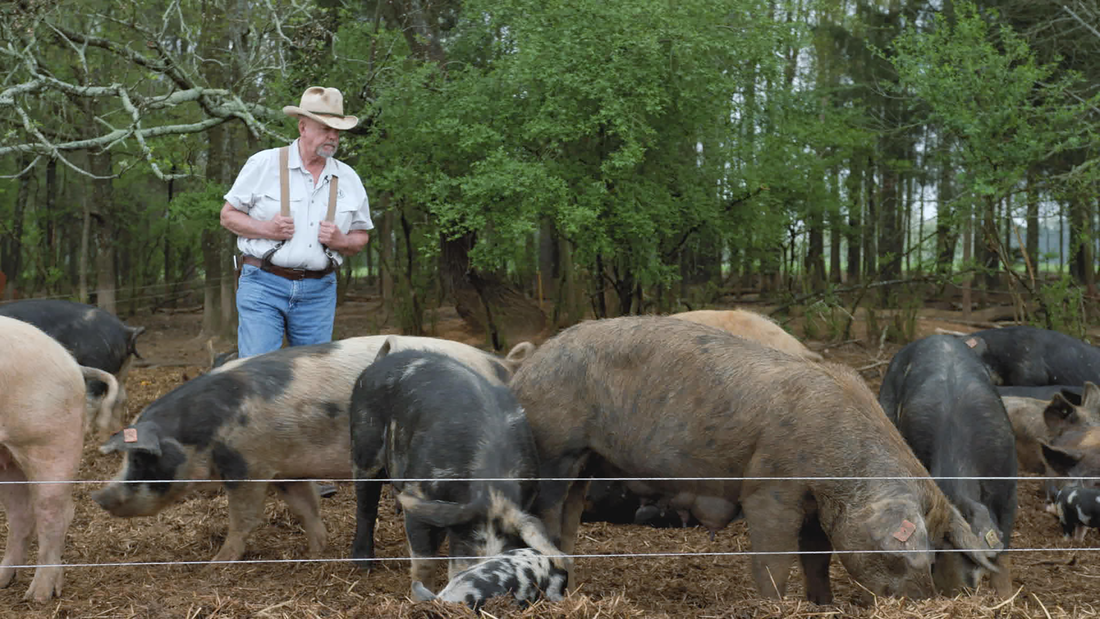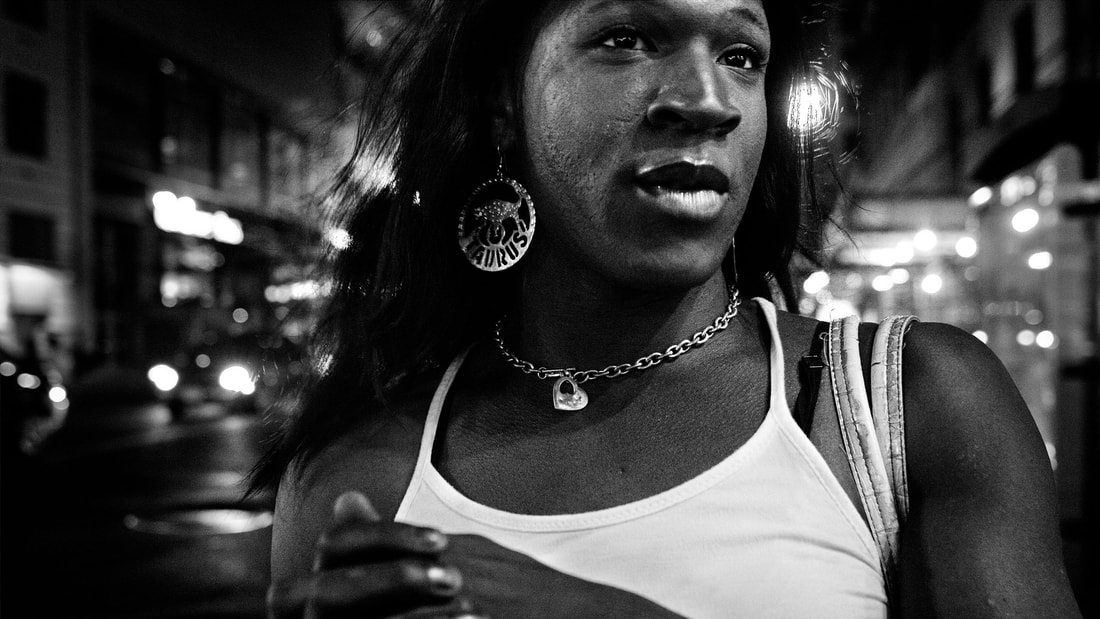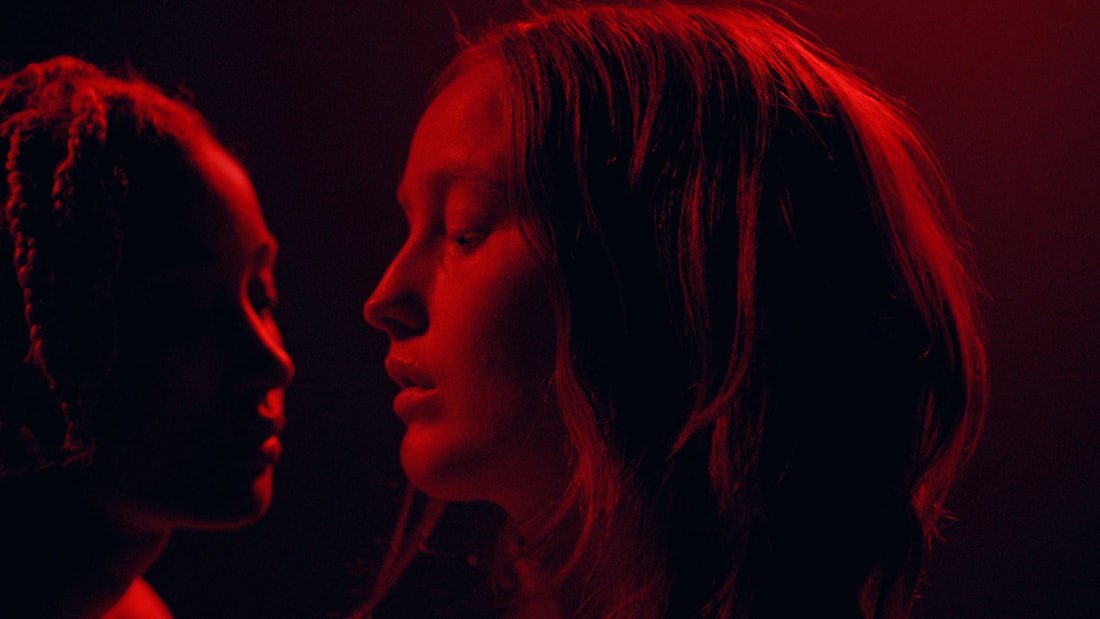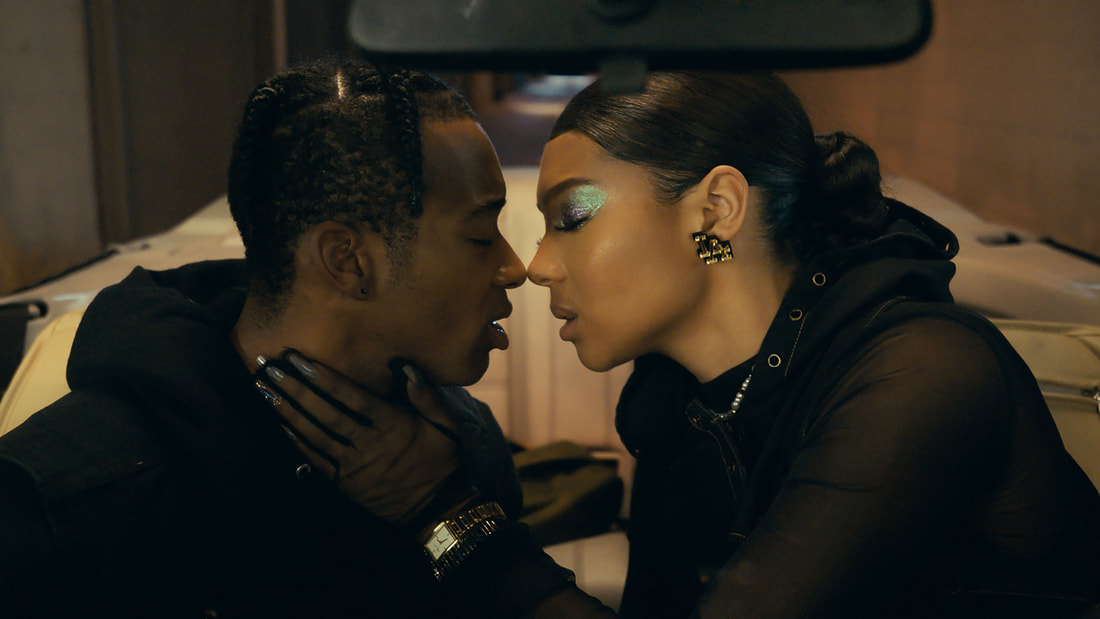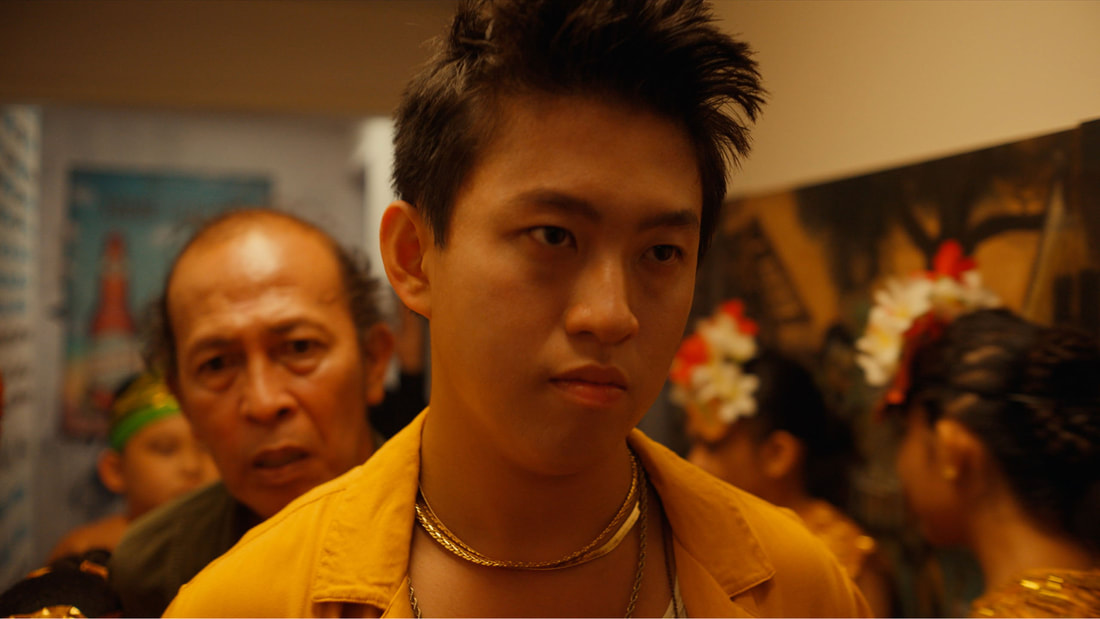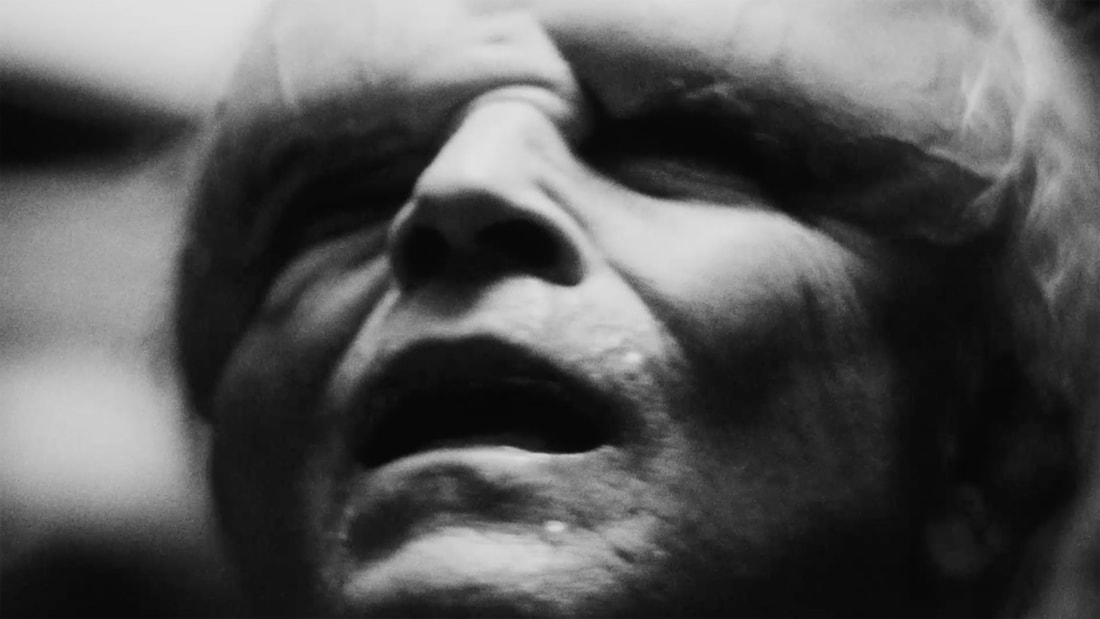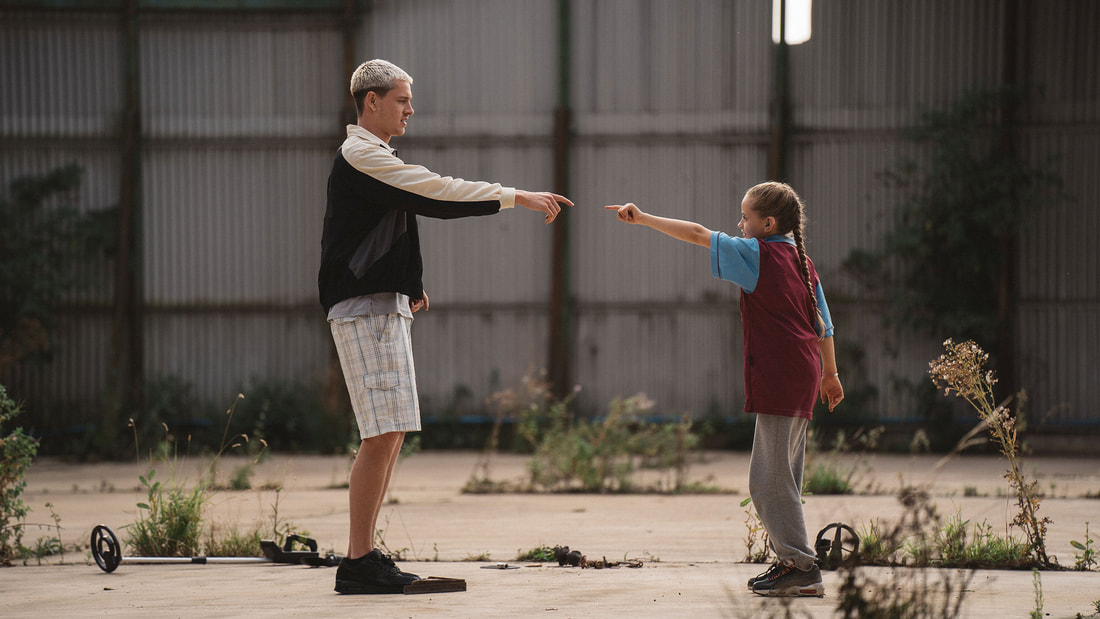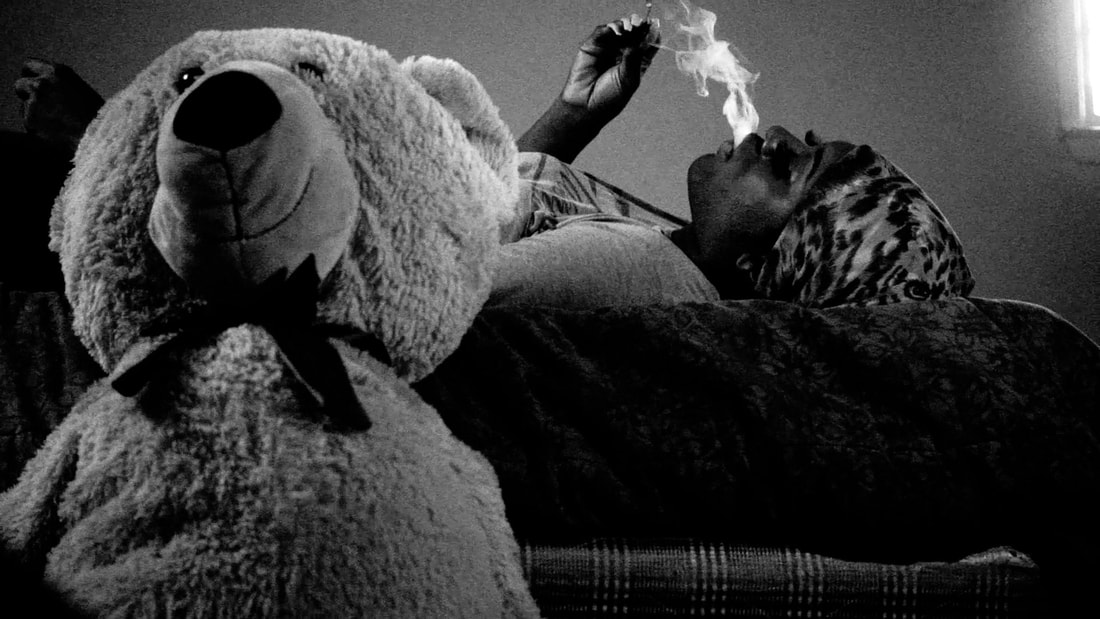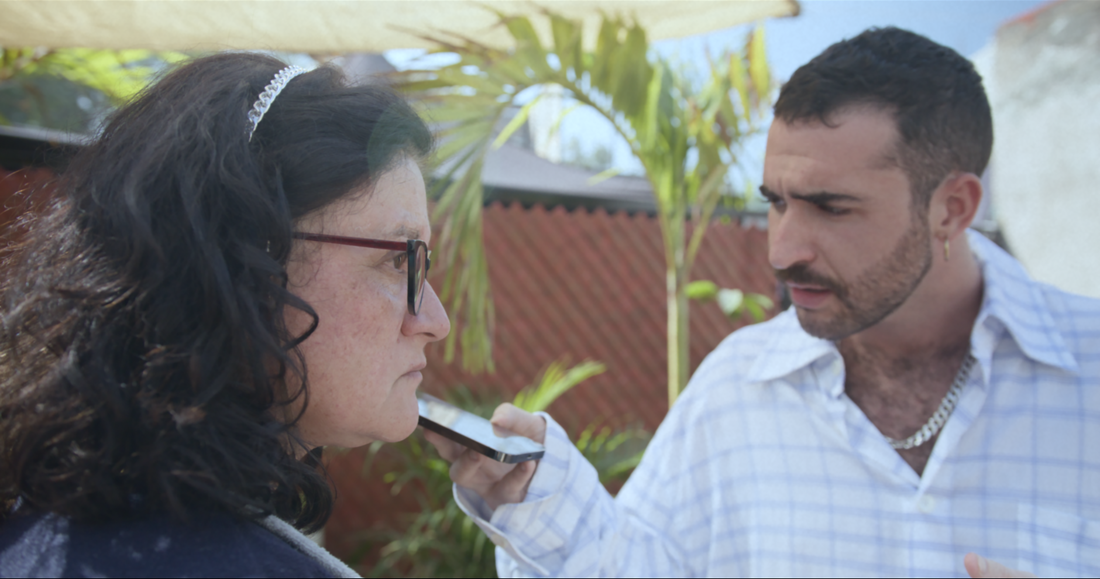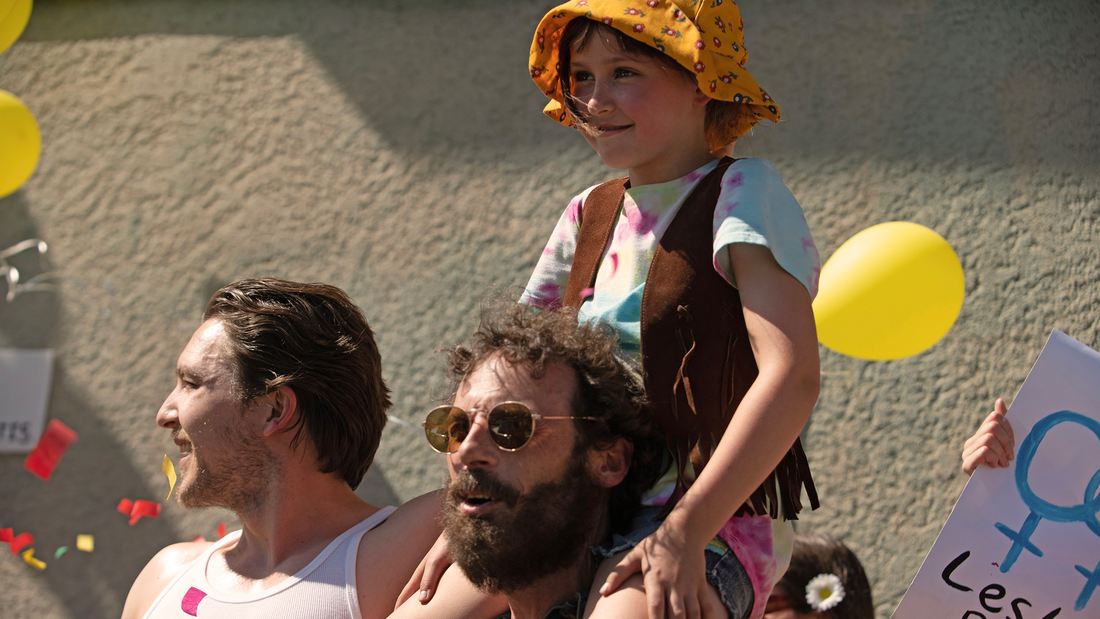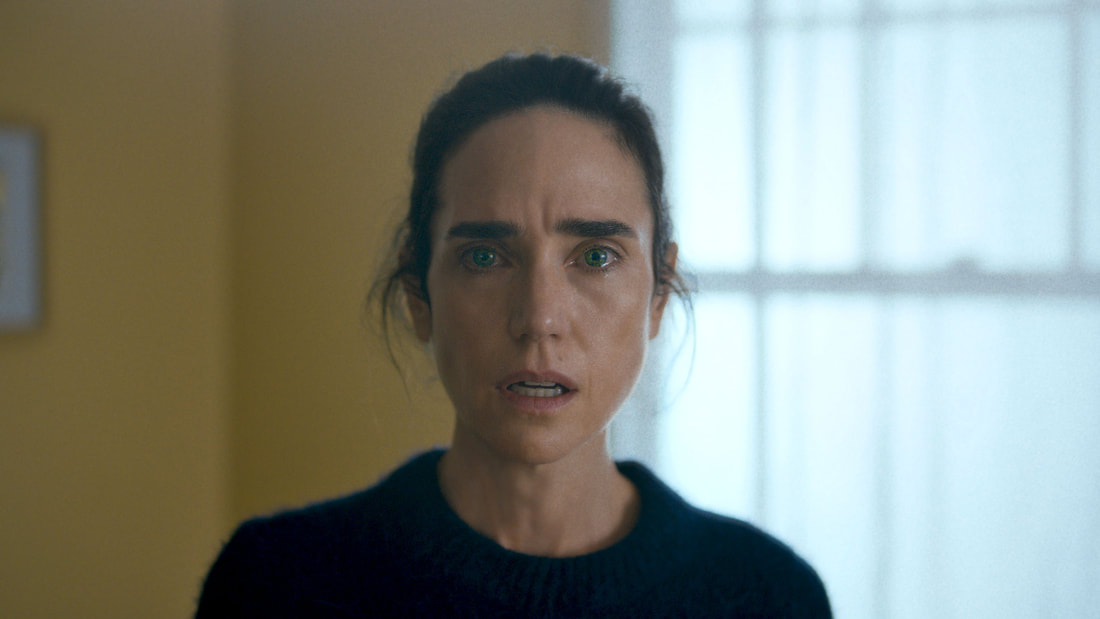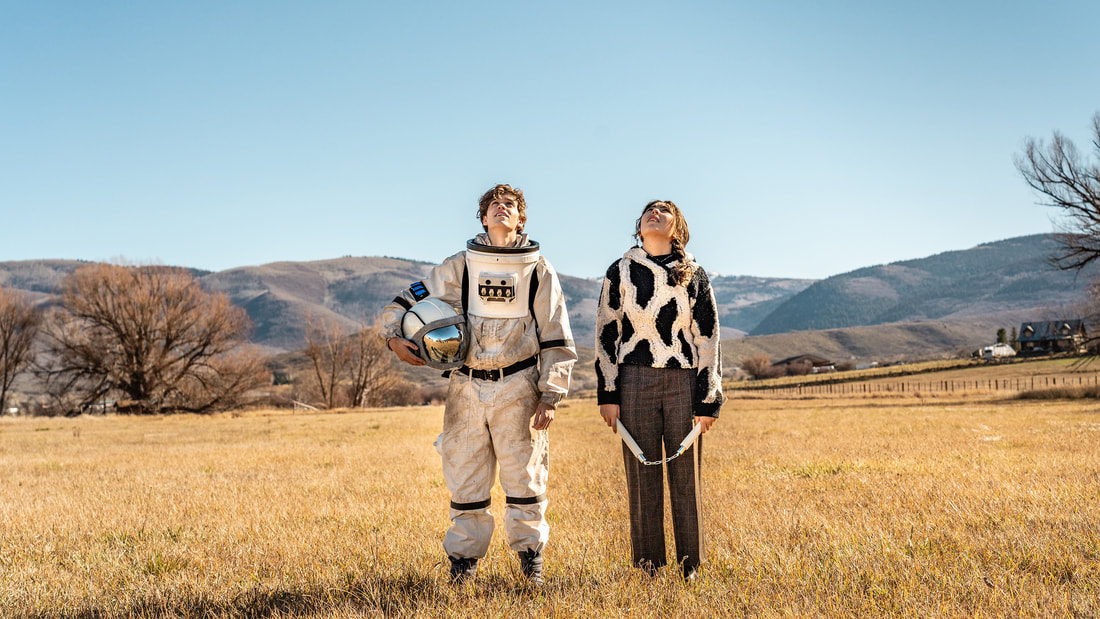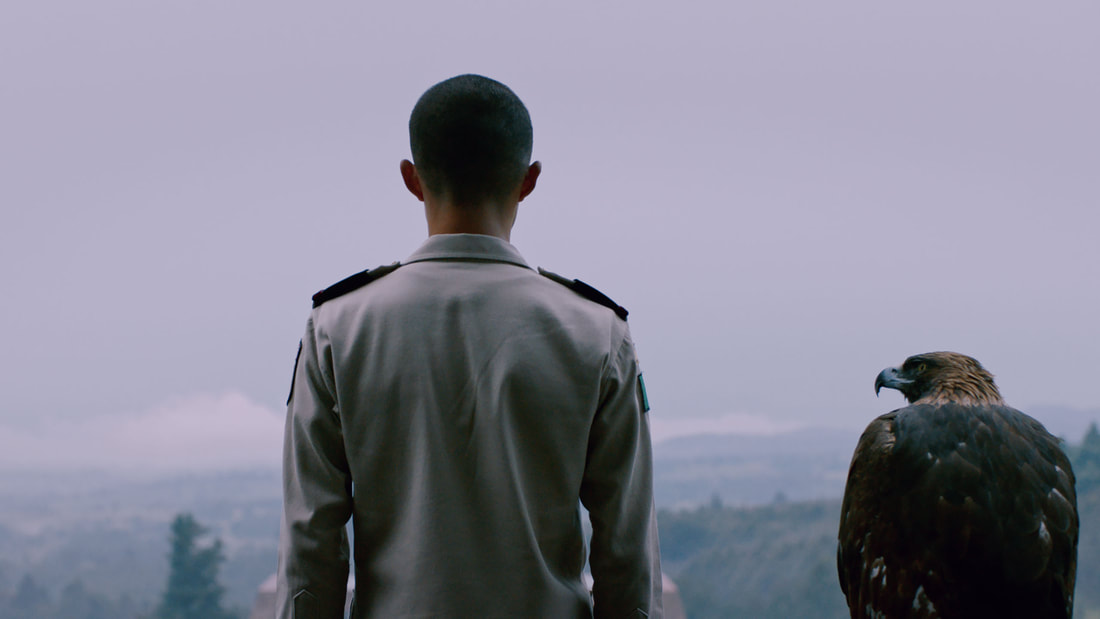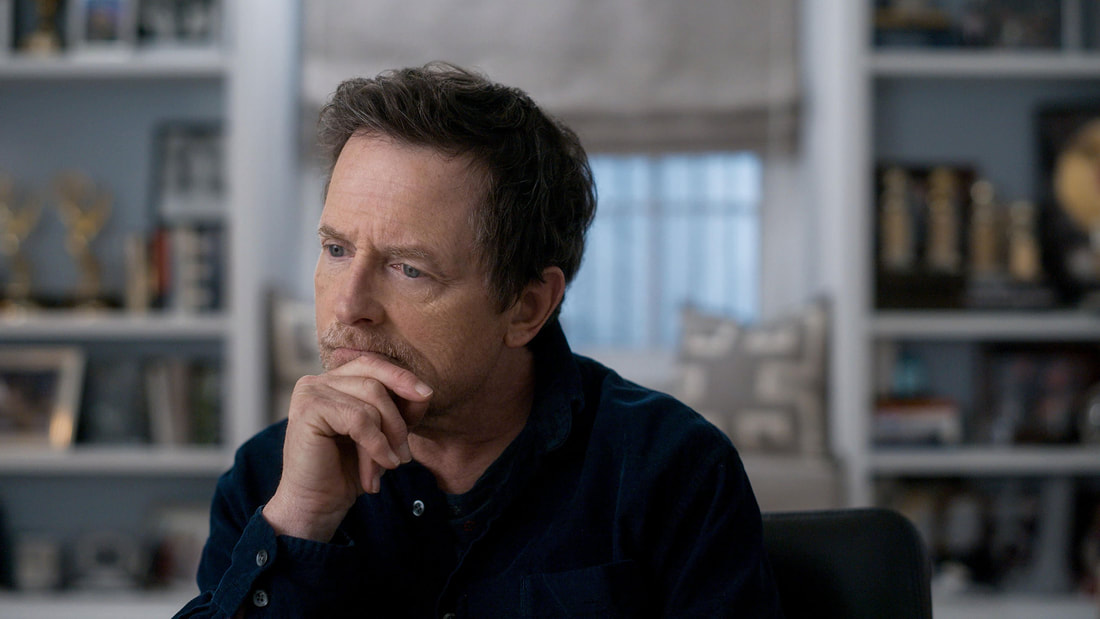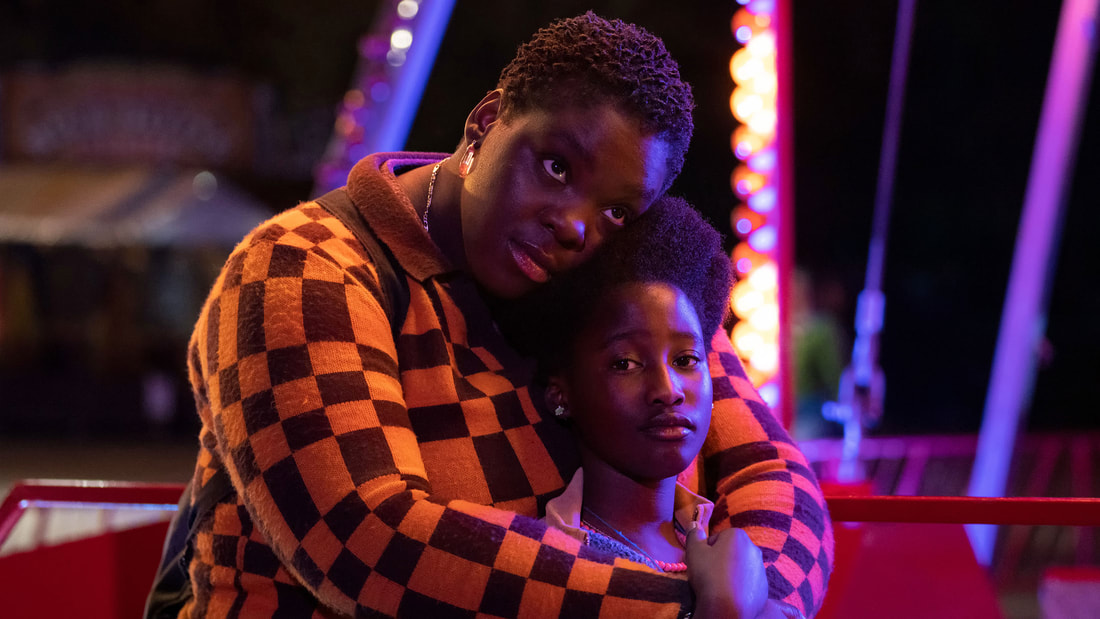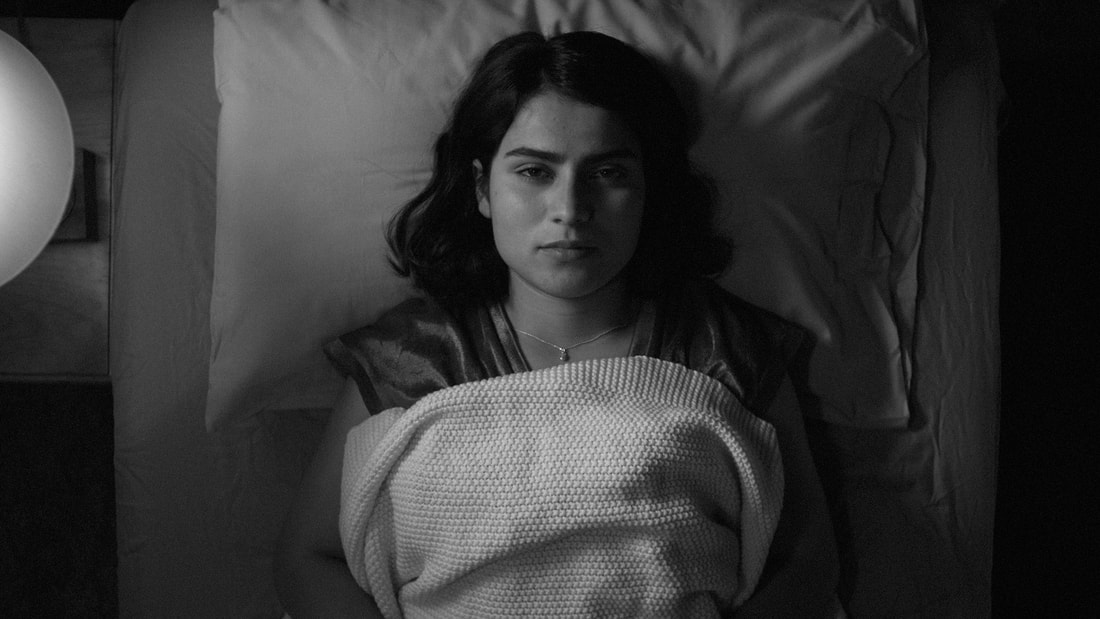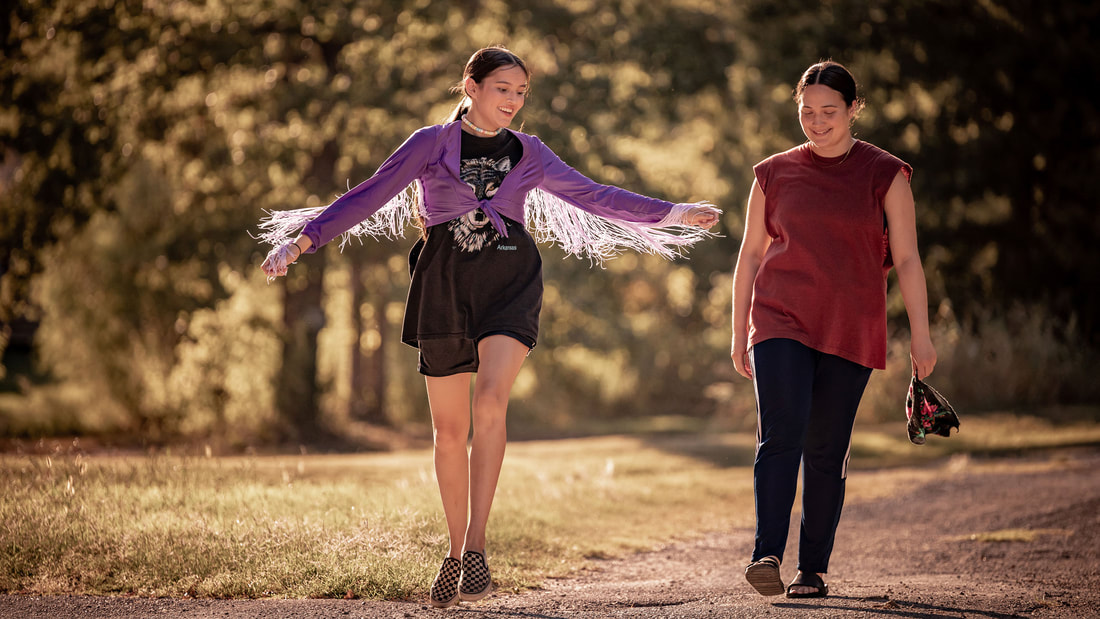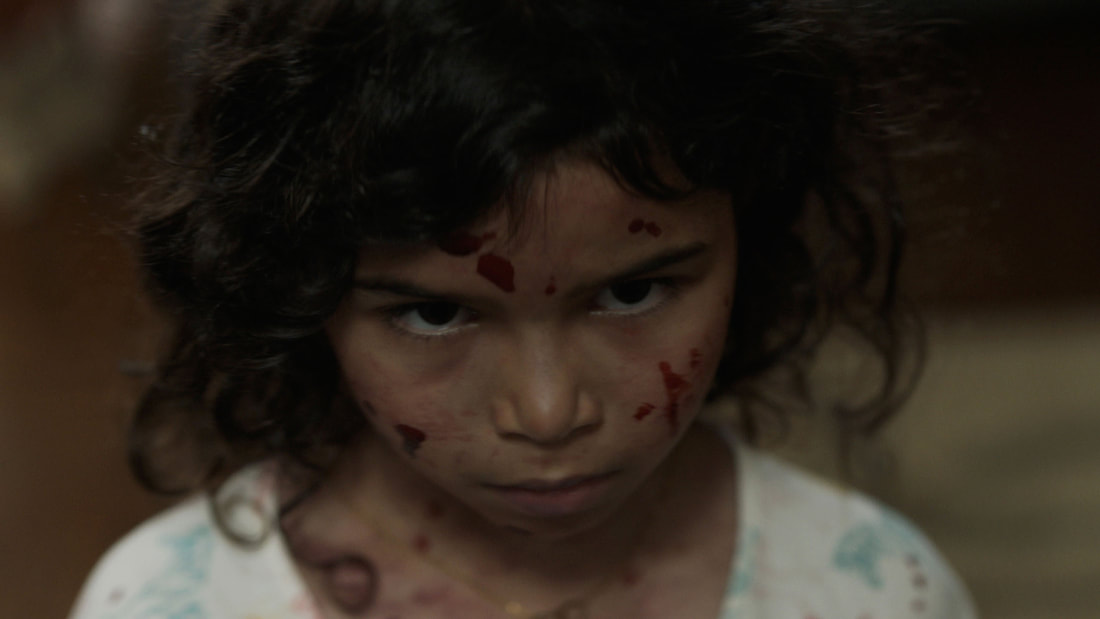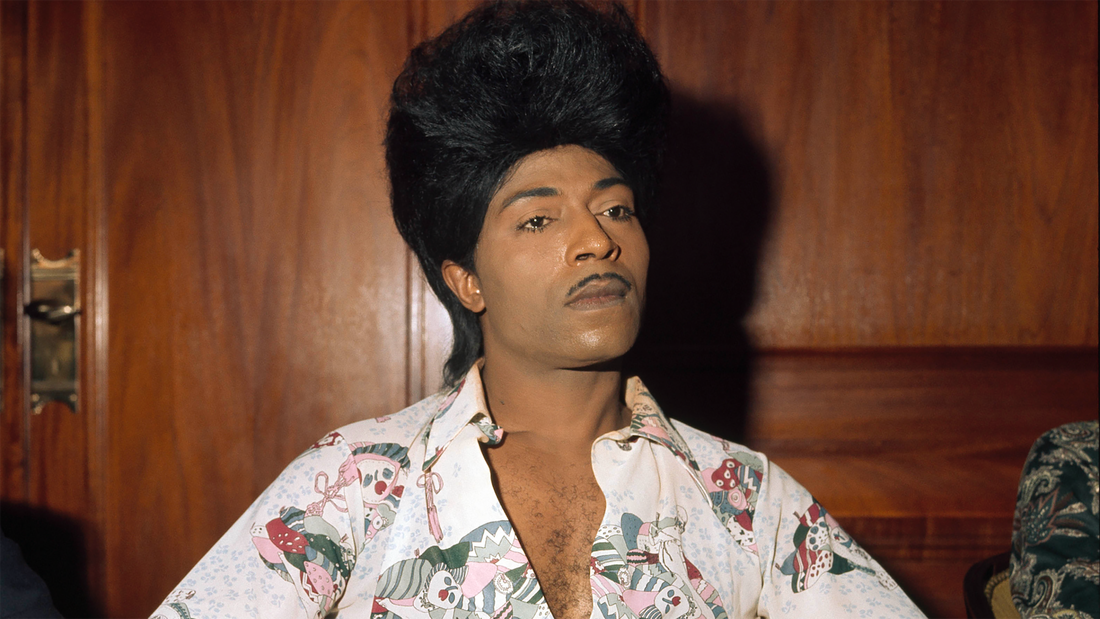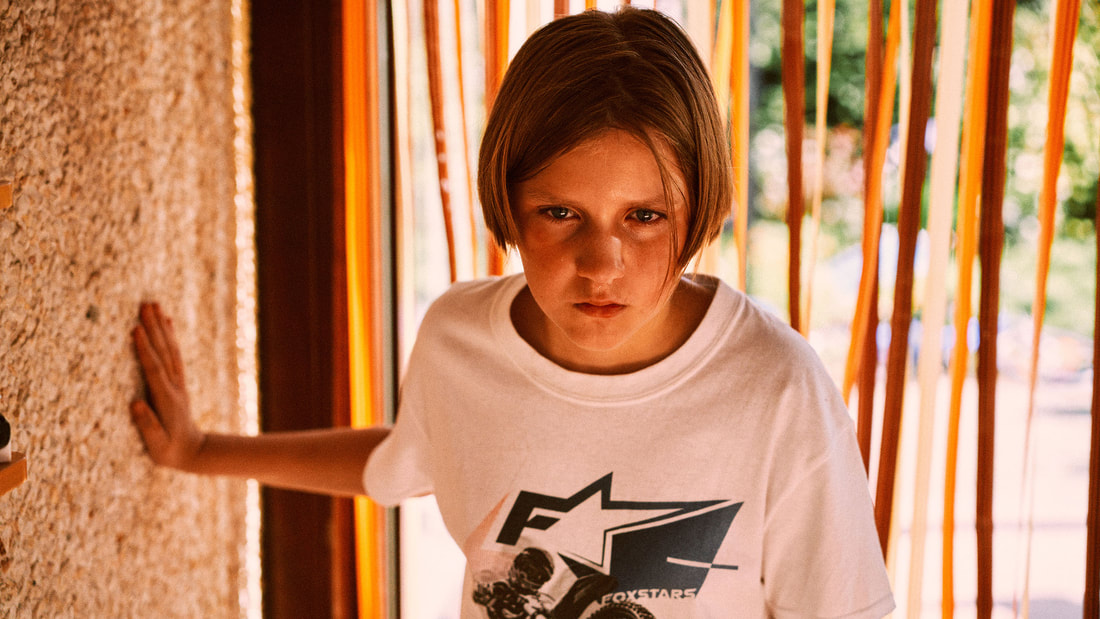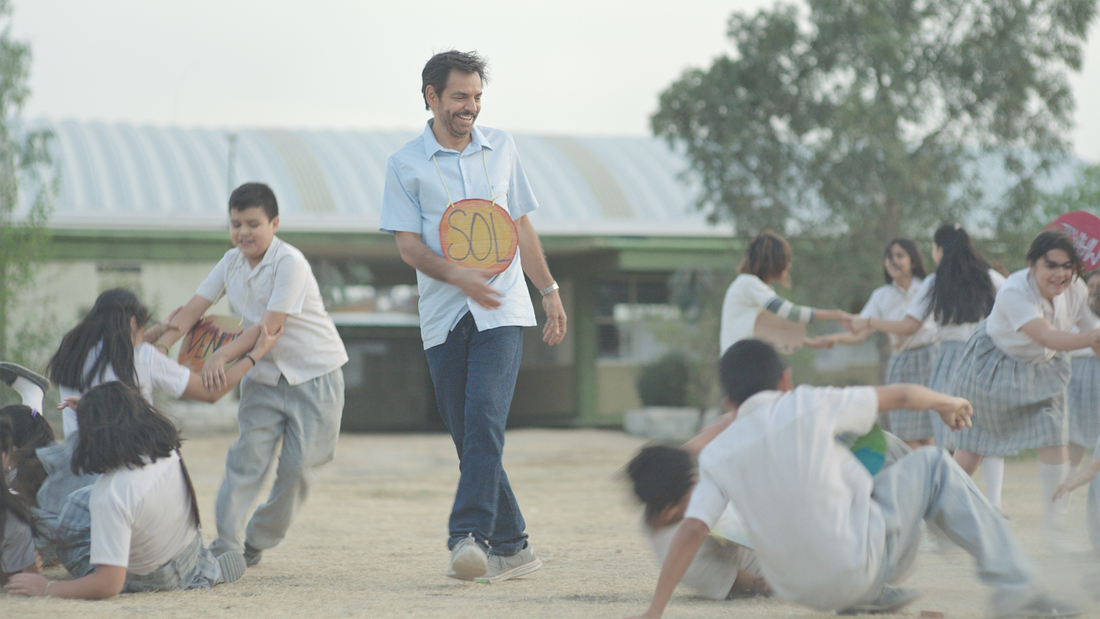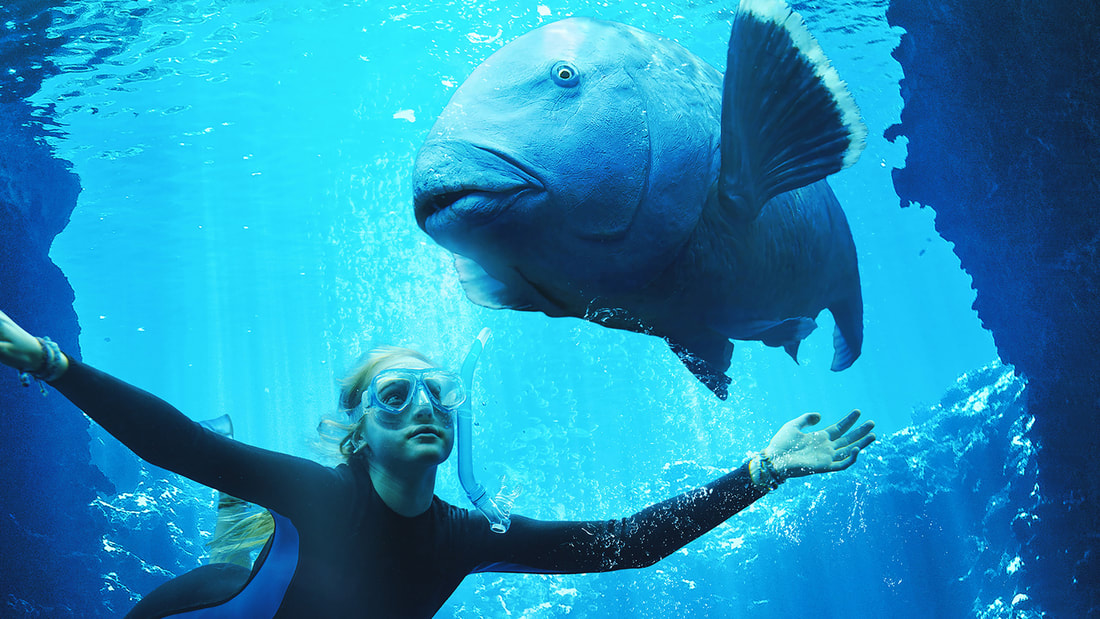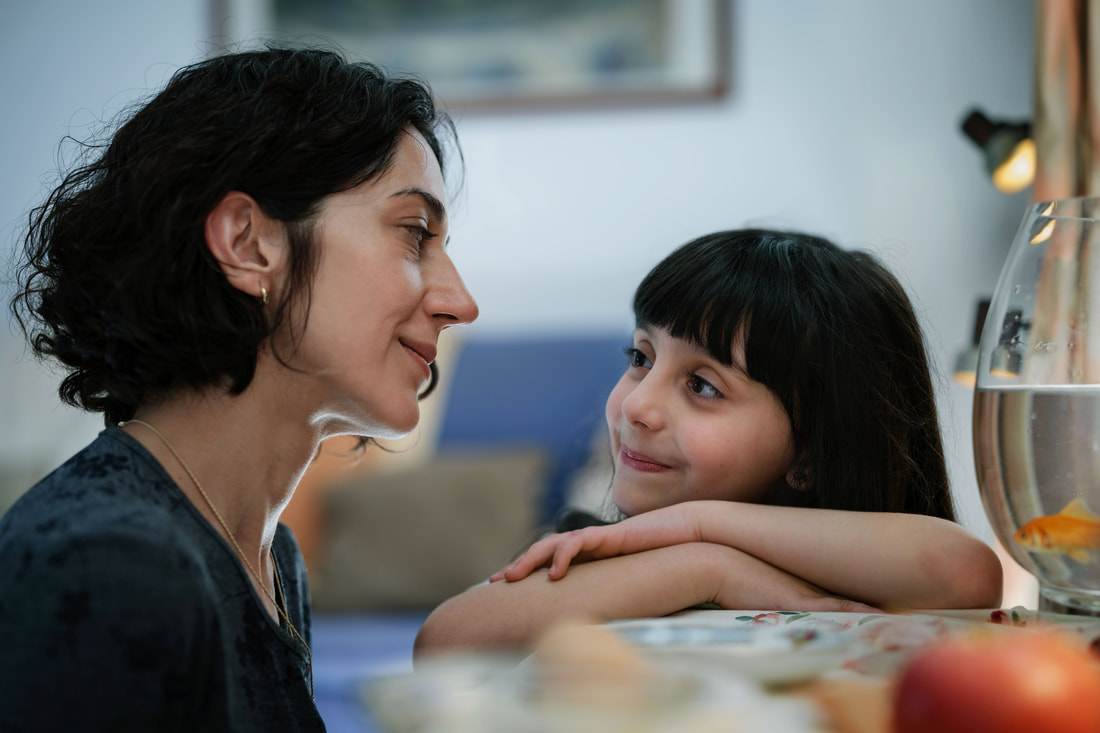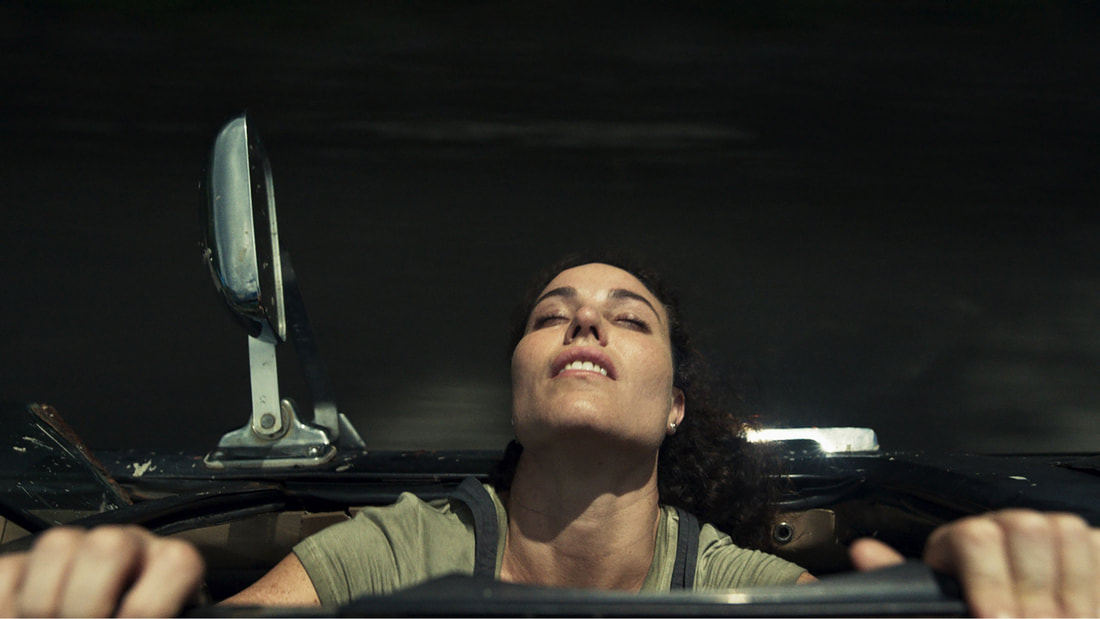|
By Sean Boelman
The Sundance Film Festival kicks off the year of independent cinema as a breeding ground for some of the most exciting films from around the world. Even before festival-goers began to convene upon the mountains in Park City, distribution deals were in the works for the movies that are going to be the next big thing. The most exciting part of attending a festival like Sundance is getting the opportunity to discover these indie gems.
We at disappointment media are covering the 2023 Sundance Film Festival remotely again, and we will be reporting on what we think may be the gems to look out for — many of which are accessible from your own home. (We will note if a film is not available for online viewing.) Be sure to check back in on this article, as we will be updating it with more brief thoughts as we continue to see more films! Twice Colonized
There’s no questioning that Greenland Inuit lawyer and activist Aaju Peter is an extraordinary woman who has managed to accomplish some amazing things, and Twice Colonized does an excellent job of giving us an intimate, fly-on-the-wall look into her life. While the film’s call to action isn’t as urgent as one would hope, especially considering the breadth of the work that Peter is doing, the film asks some interesting questions about the idea of legacy and how the impact we make can last.
Against the Tide
One of the signs of a great verité documentary is that it doesn’t even feel like a documentary, and that is the case with Against the Tide. Telling the story of two fishermen in a village torn between traditional and modern ways, the storytelling and cinematography in this film are so exceptional that viewers will feel as if they have been transported to this village and are among its villagers. The result is a really captivating, compelling look at this remote part of the world.
Going Varsity in Mariachi
There’s no question why Going Varsity in Mariachi won the Jonathan Oppenheim award for Documentary Editing — it’s one of the most sleekly-produced documentaries in this year’s lineup. However, this unorthodox underdog story about a high school band participating in competitive mariachi runs a bit longer than it should. There are always a few documentaries at Sundance that would have been better off as a short than a feature, and while this is one of them, it’s still a ton of fun.
Going to Mars: The Nikki Giovanni Project
Going to Mars: The Nikki Giovanni Project won the Grand Jury Prize in the U.S. Documentary Competition, and it seems like an award more for the subject than the film itself. There’s no denying how amazing of an artist Giovanni is — and hearing her poetry spoken by herself or narrator Taraji P. Henson is wonderful — but the film otherwise follows a pretty standard biographical documentary format. Still, the film is powerful and captivating if only because of the power of Giovanni's presence and story.
A Still Small Voice
Luke Lorentzen’s A Still Small Voice has a premise that sounds like it shouldn’t be terribly interesting: an aspiring hospital chaplain begins to experience self-doubt as she attempts to provide reassurance to patients on their deathbeds. However, Lorentzen’s storytelling is so intimate — providing a level of access that borders on feeling like voyeurism — that it’s absolutely riveting. There are some parts that feel unfocused, such as a subplot about the protagonist’s supervisor experiencing his own crisis of morality, but the core of the film is so quietly resonant that it is hard to shake.
The Accidental Getaway Driver
Sing J. Lee’s The Accidental Getaway Driver isn’t differentiated as much by its story as it is by how it approaches it. The story is a somewhat straightforward crime drama — a taxi driver is accidentally caught up in a criminal scheme when three escaped convicts take him captive — but Lee tells the story with such a focus on humanity that it feels refreshing. Is it a tad sentimental? Perhaps. Still, Hiep Tran Nghia’s performance is absolutely exquisite and what makes the film successful.
Squaring the Circle (The Story of Hipgnosis)
This year, more so than average, the Sundance documentary slate is full of bleak and depressing films. As such, it’s nice to see something like Squaring the Circle (The Story of Hipgnosis), a lighthearted music documentary that offers a relieving reprieve from the tension and devastation. Telling the story of the designers behind some of the most iconic album covers in music history, the documentary gives us the chance to hear from plenty of great musicians, and even more importantly, hear their music.
Iron Butterflies
Like last year’s Klondike (which had an in-person encore showing at this year’s festival), the documentary Iron Butterflies tells the story of the downing of Malaysia Air flight MH17. While this is undeniably an important story and there is plenty more to learn and be told about this topic, the documentary’s overly abstract and experimental nature holds it back. The filmmakers were so devoted to creative expression and experimentation with form that they fail to capture what makes this story so powerful in the first place.
The Persian Version
It’s no surprise that The Persian Version won the Audience Award at this year’s Sundance, as it’s an inoffensive, crowd-pleasing comedy benefiting from its filmmaker’s extremely personal touch. However, even though it is nice to see a film with such great representation as this, its beats are so conventional and formulaic that it ends up being rather predictable. It’s not a bad film by any means, but it never ascends beyond its saccharine nature.
Animalia
The Moroccan film Animalia is perhaps most effective as an exercise in atmosphere over anything else. Although the plot itself is rather simple despite putting up the guise of something more profound and challenging, strong direction by Sofia Alaoui and a great performance by Oumaïma Barid make this film an absolutely riveting watch. I do wish it had engaged with its themes a bit more deeply, but I was constantly engaged by the filmmaking on display.
The Eternal Memory
Chilean filmmaker Maite Alberdi follows up her Oscar-nominated documentary The Mole Agent with a film that is arguably equally sentimental. The Eternal Memory certainly presents a compelling look at the lives of a couple who are devastated by the effects of Alzheimer’s, but its attempts to get an emotional reaction out of the viewer by any means necessary become somewhat overwhelming at a certain point. It’s certainly a well-made documentary, and it’s hard to fault anyone for liking it, but Alberdi’s style simply isn’t for me.
Beyond Utopia
One of the common things about many of this year’s Sundance documentaries is that they were extraordinarily stressful, and that is certainly the case with Beyond Utopia. Following a network of people throughout Asia who strive to help North Korean defectors reach safety, the film is shot and edited in a downright captivating way. Although this arguably could have used a tighter cut, removing some of the subplots in favor of the main family, it’s still one of the most captivating documentaries of the festival.
Fantastic Machine
Axel Danielson and Maximilien Van Aertryck’s Fantastic Machine won an award for Creative Vision in the World Documentary competition, and while its editing is nothing short of impressive, it grows somewhat monotonous at a certain point. Additionally, the film thinks it’s more profound in its statements than it really is, as its central thesis is actually very obvious and straightforward.
A Little Prayer
Angus MacLachlan’s A Little Prayer boasts a star-studded ensemble but suffers from overly minimalistic writing and direction. The film’s dialogue is very stilted, but it certainly doesn’t help that MacLachlan directs his actors as if they are performing in a play, leading to delivery that fails any attempt it makes at realism. Beyond that, the film’s clumsy handling of conservative politics comes across as it endorsing pro-life opinions, which is certainly frustrating.
Food and Country
Documentarian Laura Gabbert is known for making some of the greatest culinary documentaries of the past decade, so it’s shocking that Food and Country is such a dud. Exploring the impact that the COVID-19 pandemic had on the food supply chain, Gabbert’s arguments are filled with fallacies and myths that might have done some good had they been shared a year ago, but instead reintroduce a problem that the industry has already managed to fix. The result is a film that feels both half-baked and entirely irrelevant to where we are right now.
The Stroll
Zackary Drucker and Kristen Lovell’s The Stroll is one of two documentaries playing at this year’s Sundance, and arguably the less effective of the two. In this portrait of the transgender sex workers of New York’s meatpacking district, the filmmakers can’t seem to figure out how we, as the audience, are supposed to feel about these subjects. Are we meant to be inspired by how these women were empowered by better trans rights and sex positivity, or are we to be disturbed by a system that continues to oppress them? Ultimately, the film wants us to feel a bit of both, and it struggles to make us feel anything as a result.
My Animal
Jacqueline Castel’s My Animal is so much of an homage to the horror movies of the ‘90s that it begins to feel like it was made in the ‘90s. However, unlike the films that it clearly owes so much of its artistic inspiration to, this film lacks a feeling of campy fun and sexual tension. There are some scenes that have a solid visual pastiche that imply Castel is a talent to watch out for, but Jae Matthews’s script is so lethargic that this film ends up being rather uninteresting.
Young. Wild. Free.
Thembi Banks’s Young. Wild. Free. has a solid premise and a strong supporting cast led by Sanaa Lathan and Mike Epps. Unfortunately, this unorthodox romance turns into a cringe-worthy YA drama for much of the runtime before taking a twist that brings the film into absolutely laughable territory. Perhaps this could have been salvaged, but the leads Algee Smith and Sierra Capri both give terrible performances and have no chemistry whatsoever, making this nearly unwatchable.
Jamojaya
Justin Chon’s Jamojaya is a fascinating film, and while it doesn’t always work, it absolutely slaps when it does. Following an aspiring rapper and his father, who also works as his manager, the film has some clunky symbolism but offers a compelling examination of fame and the love between a father and his son. The lead performance by Brian Imanuel (better known by his stage name, Rich Brian) is exceptional and full of emotion, and his involvement also ensures that the film has an amazing soundtrack.
Divinity
Eddie Alcazar’s Divinity, produced by Steven Soderbergh, is understandably one of the more divisive films of this year’s Sundance, because it absolutely is *not* for everyone. A cerebral indie sci-fi epic, the film gives off vibes of a Mad Max by way of Eraserhead. It’s unabashedly weird, and its themes aren’t always explored as deeply as one would hope, but it’s surprisingly entertaining and led by an unexpectedly great performance by Stephen Dorff.
Scrapper
Yet another film in this year’s Sundance lineup giving off weak Aftersun vibes, Scrapper is about as sentimental of a drama as they come. Charlotte Regan clearly thinks that she is infusing a different life into this somewhat traditional father-daughter story with her stylistic flourishes, but the film is overly simplistic and underdeveloped to make much of an impact. Rising star Harris Dickinson’s performance isn’t even enough to save the film from mediocrity.
KOKOMO CITY
D. Smith’s KOKOMO CITY is probably the film that best represents the spirit of independent filmmaking that Sundance was designed to highlight. Amidst all of the polished and mainstream films is this documentary that, quite frankly, looks cheap, but tells such a powerful and important story that it resonates nonetheless. These transgender sex workers offer an almost inhuman level of insight that is better than any sociologist would offer. The result is a portrait of Black womanhood that, while imperfect, is unabashedly personal.
Rotting in the Sun
Sebastian Silva’s Rotting in the Sun is without a doubt the most audacious film to play at Sundance this year, and it would not be surprising if it simply dropped off the map after this festival. It’s slow burning, and perhaps even a bit too long, but it’s also darkly hilarious, insightful, and even occasionally unnerving. It’s the type of cinematic experience that is hard to summarize without spoiling it, but it’s created with a very specific niche audience in mind, and when (or perhaps if) that audience finds it, this will become a cult classic. [Available for in-person viewing only.]
Fairyland
Based on the memoir by Alysia Abbott, Fairyland is the type of blandly liberal crowd-pleaser that will warm audiences’ hearts and then be forgotten as soon as the credits roll. The film deals with big topics including the AIDS epidemic, but it does so in a way that is so saccharine that its tear-jerking nature prevents it from having any real emotional impact. Emilia Jones is solid here, if underused, and Scoot McNairy gives a career-best performance, but there’s little else about this film that elevates it beyond a mediocre but well-intentioned family drama. [Available for in-person viewing only.]
Bad Behaviour
Bad Behaviour will go down as the festival’s most unfairly maligned film. Perhaps it’s a case of misguided preconceptions, as filmmaker Alice Englert is the daughter of acclaimed New Zealander filmmaker Jane Campion — and her style is nothing like her mother’s. And while the film does admittedly take almost a full hour to get into its full rhythm, there is a point in the film where it becomes a devilishly cathartic satire, and the performances by Jennifer Connelly and Ben Whishaw are both extremely funny.
Aliens Abducted My Parents and Now I Feel Kinda Left Out
Aliens Abducted My Parents and Now I Feel Kinda Left Out has the most playful title of any film in the Sundance lineup, but the film is unfortunately unable to match the title’s energy. Although the film is entirely harmless, a cutesy if often cringe-worthy family-friendly adventure, it’s not particularly interesting. The film settles for sentimentality rather than legitimately engaging with its themes in a meaningful way, and the result feels rather inauthentic.
Heroic
David Zonana’s Heroic is a simple and relatively familiar film. However, in terms of films whose message is “war is hell,” it’s pretty staggering in its emotional effect. The film could have used stronger character development, and the ending doesn’t tie the themes together in a particularly cohesive or engaging way, but there are plenty of images throughout the film that will linger in viewers’ minds long after the credits roll thanks to their raw, harrowing nature.
Still: A Michael J. Fox Movie
Actor Michael J. Fox has been very vocal about his journey with Parkinson’s Disease in recent years, so it seemed like Still: A Michael J. Fox Movie wouldn’t be essential viewing. However, Academy Award-winning documentary filmmaker Davis Guggenheim takes such an extraordinarily dynamic approach to telling this story that it is absolutely captivating and heart-warming. Blending creative reenactments with footage from Fox’s films and intimate talking head interviews with the actor, this is one of the most moving, inspiring documentaries of the festival — and likely the entire year. [Available for in-person viewing only.]
Girl
Adura Onashile’s Girl gives off the vibes of a more abstract version of Aftersun, albeit about a mother-daughter relationship. The film is gorgeously shot, and thrives when it focuses on the dynamic between the two core characters, played lovingly by Déborah Lukumuena and Le’Shantey Bonsu. Unfortunately, the film’s attempts at creating a parallelism between the coming-of-age stories of the daughter and her young mother aren’t entirely effective, but there are some strongly resonant moments nonetheless.
Fremont
Babak Jalali’s Fremont puts up a much more simple guise than what it may seem. The film follows an immigrant who once served as a translator for U.S. troops in Afghanistan as she attempts to assimilate into the daily life of her tight-knit community in the Bay Area. It’s a quaint little film, with much of the runtime being the protagonist working in a fortune cookie factory or in therapy sessions (with a therapist played humorously well by Gregg Turkington), but the script has the right level of acerbic wit and tenderness for it to work. (There’s not enough Jeremy Allen White, though.)
Fancy Dance
Filmmaker Erica Tremblay has made a splash on the festival circuit in recent years with her acclaimed short films, so her feature debut, Fancy Dance, was one of the most exciting prospects of Sundance. This story of a woman and her niece who set out on a journey to reach the state powwow looking for their missing family member, the film is without a doubt one of the most emotionally affecting films of the festival. Add in a timely message about the Missing and Murdered Indigenous Women (MMIW) crisis, and this is a film to keep an eye out for.
The Eight Mountains
Felix van Groeningen and Charlotte Vandermeersch’s The Eight Mountains won the Grand Jury Prize at its debut at the Cannes Film Festival last year, and it’s understandably why. The tender, gorgeous film benefits from some extraordinary cinematography by Ruben Impens, a great score by Daniel Norgren, and strong performances all-around, particularly from Luca Marinelli and Alessandro Borghi. Although this story of a decades-spanning friendship may be a bit conventional, it is powerful nonetheless.
birth/rebirth
Although it is billed as a modern riff on Frankenstein, Laura Moss’s birth/rebirth feels more reminiscent of H.P. Lovecraft’s Herbert West–Reanimator than Mary Shelley’s gothic classic. Regardless, this dark, moody sci-fi is an intriguing and compelling look at two women bringing a little girl back from the dead. The lo-fi visual style is accentuated by bursts of effectively utilized gore, and the lead performances by Judy Reyes and Marin Ireland are both fantastic. The film will be released on Shudder later this year, and will undoubtedly end up being a hit among their subscriber base. [Available for in-person viewing only.]
Little Richard: I Am Everything
Filmmaker Lisa Cortes (All In: The Fight for Democracy) structures Little Richard: I Am Everything much as one would a standard rock biography, but that is in form only. The content of the film is pretty fantastic, genuinely engaging with its subject’s legacy in ways that few biodocs do. Although the film does make some questionable decisions — such as glossing over the musician’s relationship with a minor as something romantic — its evaluation of his legacy as an African-American and queer pioneer of music feels genuinely insightful, which is such a rarity for this genre.
When It Melts
Veerle Baetens’s When It Melts is a fascinating film that will stick with viewers, regardless of whether or not they particularly like it. The film tells the story of a young woman who, more than a decade after an innocent summer prank that turns into something much more disturbing, returns to her hometown looking to confront her tormentors. It’s difficult to recommend the film because it is so unnecessarily graphic and disturbing with its depiction of sexual assault — and in a way that feels gratuitous. Still, one can’t deny that the film that Baetens has made is audacious and intriguing, even if it frequently doesn’t work.
Radical
The Eugenio Derbez starring vehicle Radical is a crowd-pleaser through-and-through, even if it does play it safe and stick to familiar beats. Following a teacher who uses an unorthodox method to connect with his students at a school in a low-income Mexican border town full of violence, the film is very reminiscent of ones that came before it, like Stand and Deliver or Dead Poets Society. Still, Derbez’s extraordinarily charismatic performance does a lot of heavy lifting here, as does the film’s willingness to poke the bear of the political issues underlying this story. [Available for in-person viewing only.]
Blueback
The Australian ecological family drama Blueback premiered at the Toronto International Film Festival last fall and is now making a quick stop at Sundance before its release in the States this spring. Although the film’s environmentalist message is certainly a positive one, the film plays out in a generic, maudlin way that feels almost like a rip-off of classic films of the genre like Free Willy. That being said, the cinematography is excellent — especially during the underwater scenes — and it’s more than charming enough to be a decent watch for the kiddos.
Shayda
Led by a powerhouse performance by Zar Amir Ebrahimi (Holy Spider), Noora Niasari’s Shayda is an absolutely devastating family drama. With a heightened sense of realism and very little melodrama to be found, owing to the film being partially inspired by Niasari’s own experiences, the film will have viewers feeling equally anxious and crushed throughout its runtime. Ebrahimi brings an extraordinary amount of empathy to her role, cementing her as one of the most exciting new talents on the scene.
La Pecera (The Fishbowl)
Glorimar Marrero Sanchez’s La Pecera (The Fishbowl) is a compelling character study, but it is held back by trying to do too much. Following a woman who decides to return to her hometown in Puerto Rico after receiving a terminal cancer diagnosis, the first act is a relatively standard — if mostly effective — cancer drama. Unfortunately, the remainder of the film introduces some themes that are disappointingly underdeveloped, leaving the end product feeling overstuffed and shallow.
The 2023 Sundance Film Festival runs January 19-29 in-person in Park City, UT and January 24-29 online.
0 Comments
Leave a Reply. |
The Snake HoleRetrospectives, opinion pieces, awards commentary, personal essays, and any other type of article that isn't a traditional review or interview. Archives
April 2024
Categories
All
|
|
|
disappointment media
Dedicated to unique and diverse perspectives on cinema! |

